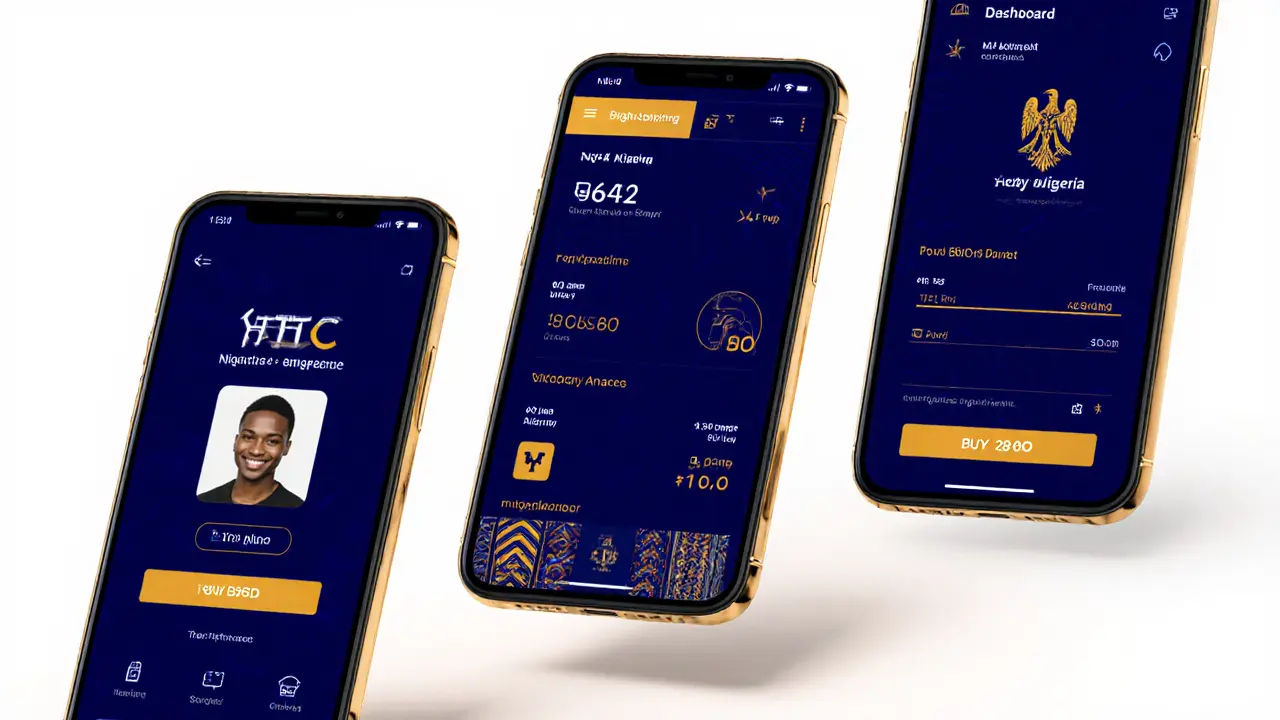Crypto Regulation Nigeria: What You Need to Know
When working with Crypto Regulation Nigeria, the set of laws, guidelines, and supervisory actions that govern how digital currencies are used, traded, and reported in Nigeria. Also known as Nigeria crypto law, it shapes every move you make in the local crypto scene.
At the heart of this framework sits the Central Bank of Nigeria, the monetary authority that issues licensing requirements, enforces anti‑money‑laundering (AML) rules, and can issue bans or approvals for crypto activities. Its directives determine whether a cryptocurrency exchange, a platform that matches buyers and sellers of digital assets, must obtain a license and implement strict Know‑Your‑Customer (KYC) checks can operate legally. In practice, the bank’s licensing regime requires exchanges to submit detailed compliance reports and to freeze accounts linked to illicit activity.
Key Compliance Pillars
The regulatory landscape revolves around three pillars: licensing, AML/KYC, and tax reporting. First, the digital asset licensing, the formal permission granted by the Central Bank for an exchange or wallet service to operate in Nigeria ensures that only vetted entities can handle user funds. Second, AML compliance anti‑money‑laundering regulations, rules that force crypto firms to monitor transactions, flag suspicious activity, and report to financial intelligence units directly influence how quickly you can move money in and out of the country. Finally, tax obligations require traders to declare gains under the Income Tax Act, meaning every profit or loss must be recorded for the Federal Inland Revenue Service.
These pillars are not isolated; they constantly interact. For example, a licensing authority can revoke an exchange’s permit if AML audits reveal repeated violations, which in turn forces users to withdraw their assets before the platform shuts down. Likewise, strict tax reporting can trigger deeper AML scrutiny, especially for large transfers that cross the threshold set by the Central Bank.
For everyday traders, the most visible impact is the need to verify their identity before they can deposit or withdraw crypto. KYC checks typically ask for a national ID, proof of address, and a selfie. After verification, the exchange must keep transaction logs for at least five years, ready for any potential audit. This data‑retention policy is a direct outcome of the AML framework and helps authorities track cross‑border flows that could fund illicit activities.
Another practical angle is the effect on DeFi platforms. While decentralized protocols operate without a central operator, Nigerian regulators increasingly view them as “virtual exchanges.” That means users who interact with DeFi may still be required to report earnings and could face penalties if they ignore tax rules. The Central Bank’s stance is evolving, so staying informed about official statements is crucial.
When it comes to market participation, the regulatory environment also shapes investment strategies. Many Nigerian investors now prefer Dollar‑Cost Averaging (DCA) to smooth out price volatility while staying compliant with periodic reporting requirements. DCA fits well with the tax system because it spreads purchases over time, making it easier to calculate average cost basis for each tax year.
Security is another layer that regulators indirectly enforce. Exchanges that meet licensing standards must implement robust security measures—cold storage, multi‑factor authentication, and regular penetration testing. Those safeguards protect your assets from hacks, which the Central Bank views as a systemic risk to financial stability.
Looking ahead, the Central Bank has hinted at a possible central bank digital currency (CBDC) rollout. A CBDC could coexist with existing crypto assets but would likely be subject to tighter controls, such as real‑time transaction monitoring. Understanding how a CBDC fits into the current regulatory framework will help you adapt your crypto portfolio when the new digital pound arrives.
The collection below reflects these themes. You’ll find a deep dive into exchange security, a practical guide to AML‑compliant trading, an overview of tax reporting for crypto gains, and strategy pieces like Dollar‑Cost Averaging that align with Nigeria’s regulatory reality. Each article is curated to give you actionable insight, whether you’re a beginner looking for a safe entry point or an experienced trader needing to fine‑tune compliance.
Explore the articles to see how the pieces fit together and to stay ahead of any regulatory shifts that could affect your crypto journey in Nigeria.

Nigeria Crypto Banking Ban Reversal: 2021‑2025 Timeline & Impact
Explore Nigeria's journey from the 2021 crypto banking ban to the 2025 Investments and Securities Act, with a clear timeline, regulatory details, and impact on users and businesses.

Crypto Adoption in Nigeria: 2025 Trends, Drivers, and Future Outlook
Nigeria tops African crypto adoption, driven by high inflation, limited banking and new regulations. Learn the economic triggers, ecosystem shifts, user habits, challenges, and the future outlook for crypto in Nigeria.
